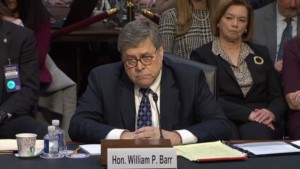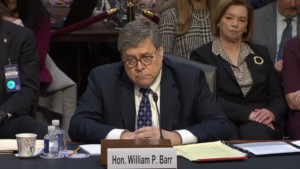January 15, 2019
 In Senate testimony today, nominee for Attorney General William Barr committed to not use the limited resources of the Department of Justice to prosecute state-regulated and compliant marijuana businesses. His statements came response to questions from Senators Cory Booker (D-NJ) and Kamala Harris (D-CA) — each of whom represent states where marijuana is legally regulated for either medical or recreational purposes.
In Senate testimony today, nominee for Attorney General William Barr committed to not use the limited resources of the Department of Justice to prosecute state-regulated and compliant marijuana businesses. His statements came response to questions from Senators Cory Booker (D-NJ) and Kamala Harris (D-CA) — each of whom represent states where marijuana is legally regulated for either medical or recreational purposes.
“It is encouraging that William Barr pledged not to enforce federal marijuana prohibition against the majority of US states that have reformed their laws. With this commitment, Congress has a clear mandate to take action and end the underlying policy of federal criminalization,” said NORML Political Director Justin Strekal. “In an era when 47 states have laws on the books that defy the Schedule 1 status of cannabis, it makes no sense from a political, fiscal, or cultural perspective to try to put this genie back in the bottle.”
In January of 2018, former Attorney General Jeff Sessions rescinded what is known as the Cole Memo, a 2013 Justice Department memorandum, authored by former US Deputy Attorney General James Cole to US attorneys in all 50 states. This memorandum directed prosecutors not to interfere with state legalization efforts and not to prosecute those licensed to engage in the plant’s production and sale — provided that such persons do not engage in marijuana sales to minors or divert the product to states that have not legalized its use, among other guidelines.
Thirty-three states, Washington, D.C. and the U.S. territories of Guam and Puerto Rico have enacted legislation specific to the physician-authorized use of cannabis. Moreover, an estimated 73 million Americans now reside in the ten states where anyone over the age of 21 may possess cannabis legally. Additional states have passed laws specific to the possession of cannabidiol (CBD) oil for therapeutic purposes.
Members of Congress in recent years have approved amendments protecting those who engage in the state-sanctioned use and dispensing of medical cannabis from undue prosecution by the Department of Justice. The amendment maintains that federal funds cannot be used to prevent states from “implementing their own state laws that authorize the use, distribution, possession or cultivation of medical marijuana.” However, this amendment does not provide protections to state-regulated activity governing activities specific to the adult use of marijuana.
Sixty-eight percent of registered voters “support the legalization of marijuana,” according to national polling data compiled by the Center for American Progress. The percentage is the highest level of support for legalization ever reported in a nationwide, scientific poll.
Majorities of Democrats (77 percent), Independents (62 percent), and Republicans (57 percent) back legalization. The results of a 2017 nationwide Gallup poll similarly found majority support among all three groups.
To date, these statewide regulatory programs are operating largely as voters and politicians intended. The enactment of these policies have not negatively impacted workplace safety, crime rates, traffic safety, or youth use patterns. They have stimulated economic development and created hundreds of millions of dollars in new tax revenue.
Specifically, a 2017 report estimates that over 149,000 Americans are now working full-time in the cannabis industry. Tax revenues from states like Colorado, Oregon, and Washington now exceed initial projections. Further, numerous studies have identified an association between cannabis access and lower rates of opioid use, abuse, hospitalizations, and mortality.
Click here to contact your elected officials in support of pending reform efforts.











